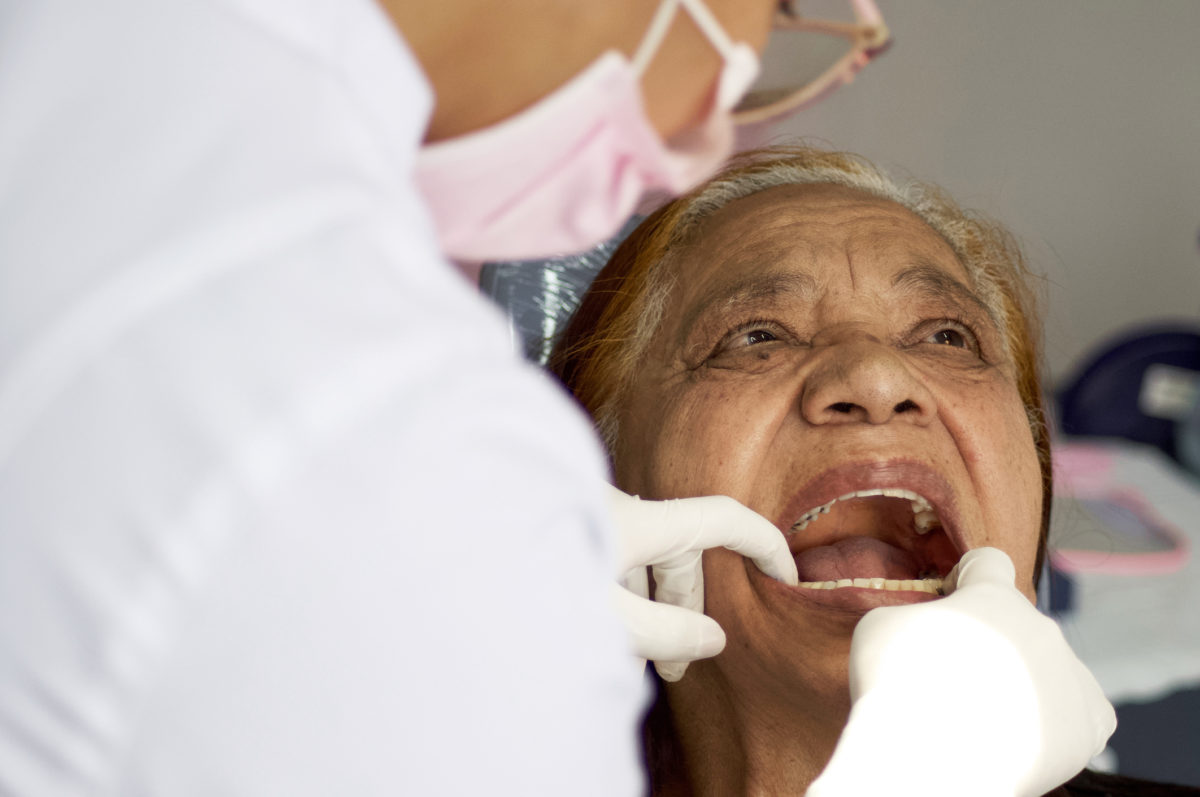Proper dental care will keep you smiling through the ages
By Jay Nachman
When it comes to dental health, “as we grow older, we are a product of all the things we didn’t do well in our youth,” said Dr. Mark S. Wolff, dean and professor of preventive and restorative dentistry at Penn Dental Medicine since 2018. “Whether it was not adequately brushing teeth, preventing tooth decay or taking care of gums, poor habits catch up with older adults. “The things we should have taken better care of when we were younger wind up catching up with us,” he said.
In addition, older adults take more medications, which can decrease salivary flow. Saliva cleans your teeth by washing away bits of food and helping to dilute acidic foods to protect your teeth from decay. Older adults are also prone to developing more diseases, such as diabetes, and injuries that can further negatively impact dental health.
The key to maintaining dental health is to see a dentist on a regular basis. Even if someone has no natural teeth and wears dentures, it’s important to be checked for oral cancer and infectious diseases that can take place in the mouth. These diseases are much easier to manage when they are caught early. “It’s important that we maintain a high state of oral health care through our aging period, or else we wind up with problems that are essentially irreversible,” Dr. Wolff said.
The biggest threat to older adults’ dental health is oral cancer. Dentists perform a routine soft tissue examination that can detect mouth cancer early, making it easier to manage. The average age of people diagnosed with oral cavity cancer is 64, and less than 20% of cases are found in people younger than 55.
The dentist will also check the condition of existing fillings crowns and caps. These teeth appendages have finite lifetimes and need to be evaluated regularly for needed repair or replacement. Regular brushing and flossing should be a part of your regular dental care routine that involves consistent office visits and other maintenance, Dr. Wolff recommended.
“We recognize as we develop arthritis in our hands and have difficulty with dexterity at times, (dental care) becomes much more difficult,” he said. Dentists and dental hygienists can recommend devices to make dental care manageable for people with arthritis.
Proper oral care can prevent a cascading series of dental problems. Diseases of the teeth and mouth affect how and what people can eat, which affects general health and wellness. People can end up eating carbohydrates instead of protein, which can lead to obesity and diabetes.
Dr. Wolff said when he graduated from Stoney Brook University School of Dental Medicine in 1981, the ability to control tooth decay was in its infancy with fluoride treatments. Now, he sees people who are living longer, and with more of their natural teeth. Today’s treatments allow people to live healthier for longer periods of time.
Even with the best dental care and overall health care, some people are going to lose teeth and will require either dentures or implants. A dental implant is a fixed tooth restoration that replaces the tooth itself in the jawbone. It is more expensive but avoids having a removable prosthesis or dentures.
“Many people do not have dental insurance as they grow older,” said Dr. Wolff. “Medicare does not cover dentistry.”
The ability to educate individuals about the importance of having a full set of teeth all your life can be a game changer for older adults, according to Dr. Wolff. “As you grow older, take good care of your teeth as a conscious decision going forward,” he said. “Just the enjoyment of going out to a restaurant is very different when the condition of your teeth allows you to eat and chew comfortably.”
The American Dental Association has more information on aging and dental health at ada.org/aging.
Jay Nachman is a freelance writer in Philadelphia who tells stories for a variety of clients.




